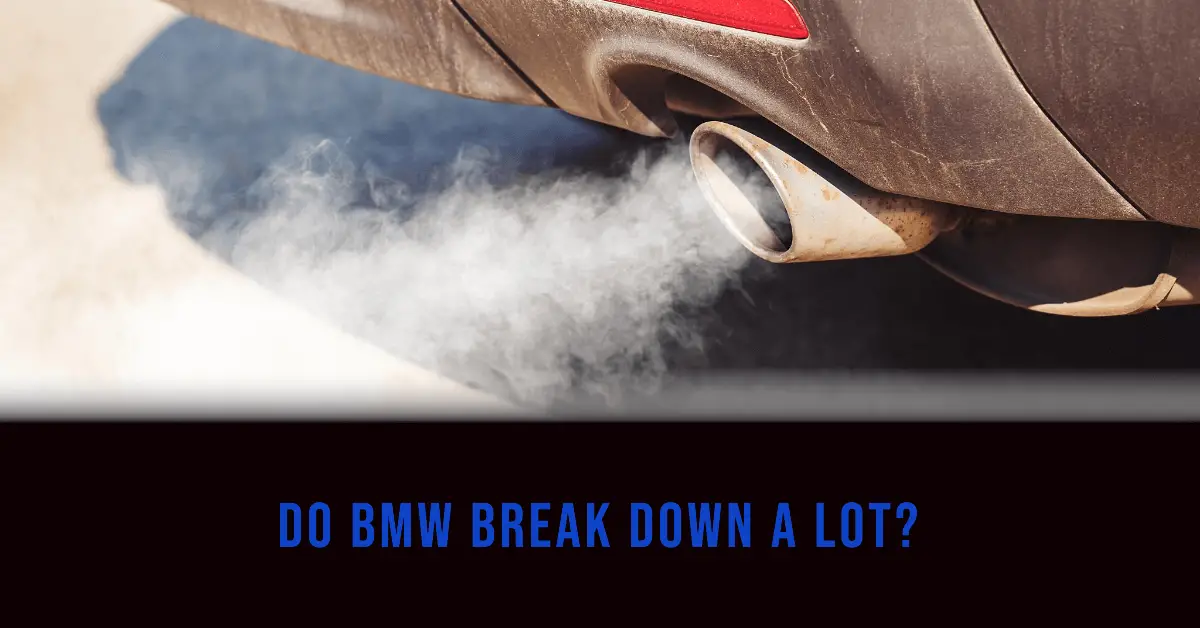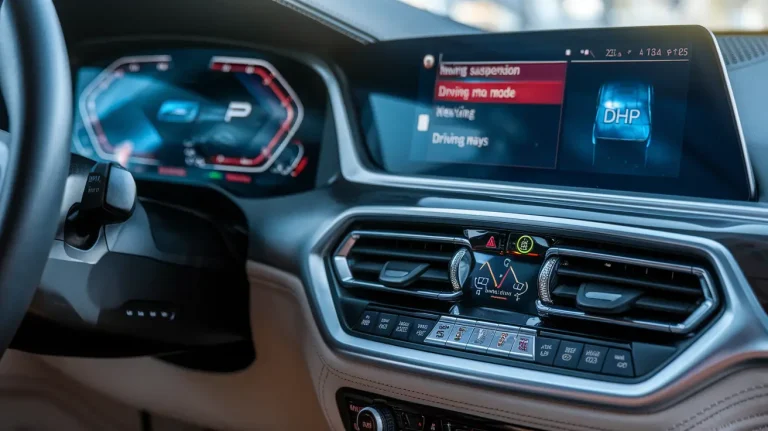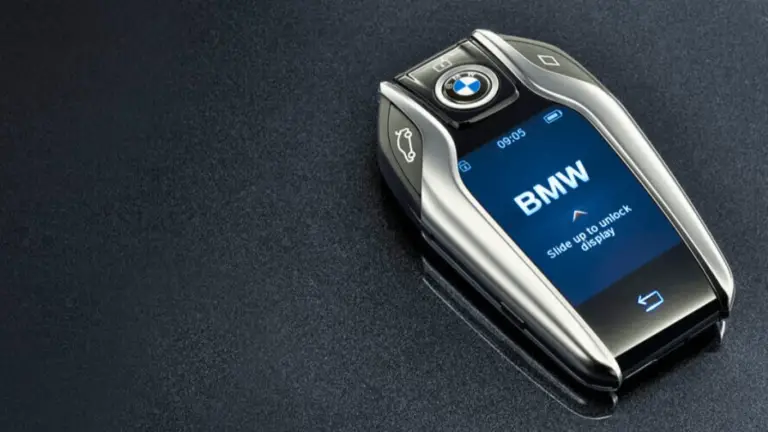Do BMWs Really Break Down More Than Other Luxury Cars?
BMW is known for making luxury performance vehicles that offer a superior driving experience. But some car shoppers wonder – do BMWs break down a lot? BMW reliability has become a hot topic among potential buyers researching the pros and cons of the brand. In short, BMWs do tend to require more maintenance and have slightly lower reliability than some competitors, but they aren’t necessarily “unreliable” overall.
This article will examine BMW’s reputation for frequent breakdowns and repairs. We’ll look at:
- BMW’s Overall Reliability Ratings
- Common BMW Repairs & Problem Areas
- How Maintenance Costs Compare to Other Luxury Brands
- Differences Between BMW Model Reliability
- Tips to Improve Reliability in a BMW
BMW’s Overall Reliability Ratings Paint a Mixed Picture
When it comes to reliability surveys and studies, BMW tends to rank below average to average among all brands. Here’s a look at their key reliability metrics:
- J.D. Power – In J.D. Power’s 2022 U.S. Vehicle Dependability Study which measures problems experienced in 3-year old vehicles, BMW ranks 24th out of 32 brands. They score 131 problems per 100 vehicles, below the industry average of 121 PP100.
- RepairPal – This repair cost estimator and shop finder provides reliability ratings based on their team’s analysis of repair frequency and cost data. They give BMW a 3.5 out of 5 rating, or “Average,” for reliability. BMW ranks 17th out of 32 luxury brands in their list.
- Consumer Reports – In their Annual Auto Reliability Survey, BMW scored a 48 out of 100 for reliability, or “Much Worse than Average.” This puts them near the bottom at 20th out of 29 brands. Consumer Reports says, “BMW’s road to reliability has been bumpy” and that owners can expect a “worse than average” number of issues.
So while BMW is certainly not topping any reliability charts, they also don’t score completely abysmally in these brand comparison studies. They rate somewhere in the below average to average range among all automakers.
Common BMW Repairs and Problem Areas
While the overall BMW brand has mixed reliability ratings, it’s true that some models have certain problem areas crop up more often than ideal. Here are some of the most commonly cited issues and repairs for BMW vehicles based on owner reports:
Engine Problems
Several parts of BMW’s engines have known weaknesses that can leave owners facing expensive repairs:
- Oil leaks – The valve cover gasket, oil filter housing gasket, and oil pan gasket tend to deteriorate over time leading to leaks.
- Turbo failures – BMW’s twin-turbo engines found in models like the 335i are prone to turbo failure, especially when modified or pushed hard frequently. Replacing the turbos can cost $2,000+.
- Timing chain guide – The plastic timing chain guides on N20 and N26 4-cylinder turbo engines have a high failure rate. Chains can start slipping and cause extensive engine damage if not addressed.
Electrical System Issues
Problems with BMW’s electrical components lead to some of the most common repair bills:
- Alternator – Premature alternator failure is common, often necessitating replacement under 100k miles.
- Battery – BMW’s aren’t immune to dead batteries but they tend to fail earlier than expected in many models.
- Ignition coils – Faulty ignition coil packs cause misfire codes and require replacement.
- Infotainment – Buggy operation of BMW’s iDrive system can require software updates or full replacement.
Suspension and Steering Problems
Two of the costlier suspension and steering repairs include:
- Control arm bushings – Worn control arm bushings lead to loose handling and clunking noises over bumps.
- Power steering leaks – Leaky power steering lines and pumps are semi-regular issues.
Accessory Failures
Several common BMW repairs involve replaceable accessories:
- Water pump – Premature water pump failure is one of BMW’s most notorious repair issues. The plastic impellers are prone to cracking.
- Thermostat – Faulty thermostats in BMW engines often don’t last over 60-80k miles before needing replacement.
- Radiator – Cracked or leaking radiators necessitate replacement more often than expected.
While any car will have some vulnerable spots, this gives a general overview of BMW’s most notorious problem areas reported by owners over the years. But it’s also worth keeping in mind that regular maintenance goes a long way towards avoiding major issues down the road.
Maintenance and Repair Costs Compared to Competitors
In addition to lower than average reliability ratings, BMW vehicles also come with higher than average maintenance bills according to studies. Here are some key statistics:
- RepairPal – RepairPal estimates that the average annual maintenance and repair cost for BMW models is $968 per year. This is 47% higher than the industry average of $652.
- YourMechanic Study – In a study of luxury vehicle repair costs over a 10 year period using YourMechanic data, BMW came in 3rd most expensive overall. The average BMW driver spent $17,800 on maintenance and repairs over 10 years.
- Luxury Brand Comparison – In that same study, Mercedes-Benz ranked 2nd with a 10 year cost of $19,200. Audi ranked 5th at around $15,800 over 10 years on average. So BMW falls somewhere in the middle of the pack among German luxury brands for maintenance and repair costs.
The combination of below average reliability surveys and higher than average annual repair costs shows that owners should budget accordingly if choosing to purchase a BMW. But proper maintenance is again key to minimizing expensive failures.
Model Differences – Which BMWs Are Most Reliable?
While BMW as a brand earns mixed reliability reviews overall, ratings do vary between models. Here are some key takeaways on the dependability differences between BMW models:
3 Series Tends to Be Most Reliable BMW
The popular BMW 3 Series sports several distinct generations, but overall it achieves better reliability ratings than BMW’s larger sedans:
- J.D. Power Dependability Study – 3 Series scores 113 PP100 vs. 116 industry average. Better than larger BMWs.
- Consumer Reports – Rates 3 Series reliability much higher than 5 and 7 Series on average.
- RepairPal – 3 Series gets 3.5 out of 5 rating for reliability from RepairPal, same as the overall brand.
Minis Have Slightly Above Average Reliability
Mini Coopers, though also owned by BMW, seem to avoid some of the reliability pitfalls of their parent company’s cars:
- J.D. Power – Minis score 108 PP100, above the 116 industry average.
- Consumer Reports – Ranks Mini Cooper as having “average” reliability, better than most BMW models.
So shoppers who want something fun and fuel efficient may find a Mini Cooper to be a reliable choice among BMW brands.
Older BMW Models Have Proven Solid
While BMW’s newest technologies sometimes suffer gremlins at first, their older platforms generally have proven reliable after years on the road:
- E46 BMW 3 Series generation (1999-2006) – This generation has stood the test of time with lower repair frequency once high mileage is reached.
- E39 5 Series (1996–2003) – The 5 Series from this era avoided most modern BMW reliability pitfalls and scores well on owner surveys.
- Toyota-BMW Z4 (2003–2008) – Early Z4 models developed jointly with Toyota avoided reliability issues and won many fans.
So purchasing an older BMW can be a good way to get modern performance and luxury while minimizing the risk of expensive repairs. Just be sure to find an example with strong maintenance history documentation.
Tips to Improve Reliability in Your BMW
While BMW vehicles may be susceptible to more frequent repairs than rival brands on average, drivers can take steps to optimize reliability in the ones they own:
Follow the Maintenance Schedule
- Stick diligently to BMW’s recommended maintenance schedule for fluid changes, inspections, and wear item replacement. Don’t skip visits to save money or you risk paying far more down the road.
Address Issues Proactively
- Diagnose and repair minor issues early before they cascade into major failures. Pay attention to warning signs and don’t ignore dash lights or symptoms.
Consider an Extended Warranty
- Since BMW’s factory warranty is 4 years/50,000 miles, purchasing an extended warranty can provide peace of mind and financial protection after it expires.
Research Common Problems
- Research what the most common issues are for your particular BMW model and know what symptoms to look out for. This allows you to proactively maintain and repair parts before they leave you stranded.
Use OEM Parts When Possible
- Opting for original BMW replacement parts rather than cheap aftermarket components can help ensure repairs last and don’t cause other problems down the road.
Find a Good Independent Mechanic
- Locating a trusted independent BMW specialist you can maintain a long relationship with is ideal for keeping repair costs reasonable while getting quality service.
If you take care to properly maintain your BMW and address issues promptly, you can get many years and miles of enjoyable driving while avoiding costly breakdowns. Paying a small premium upfront for preventative maintenance is far less expensive than major repairs down the road.
Conclusion: Are BMWs Unreliable?
After looking at the nuances of BMW reliability, the verdict seems to be:
- BMW as a brand earns below average to average reliability ratings in most surveys and studies when compared to all major automakers.
- However, properly maintained BMW vehicles can still deliver tens of thousands of miles of enjoyable performance and luxury driving without excessive breakdowns.
- Certain BMW models like the 3 Series tend to achieve better dependability ratings than larger luxury sedans from the brand.
- Keeping up with scheduled maintenance, addressing issues promptly, researching common problems, and considering a warranty are the best ways to improve long term reliability in a BMW.
While cars from brands like Lexus and Porsche tend to experience fewer mechanical issues on average, BMW reliability does not appear to be so universally poor that they should be considered “unreliable” by default. Taking care of maintenance and repairs is the key to extracting maximum longevity and enjoyment from your BMW.
So while they may require a bit more TLC to keep running smoothly, BMW vehicles that are well cared for can still be a pleasure to drive long past 100,000 miles. Buyers simply need to be prepared for the stronger possibility of occasional issues cropping up compared to other luxury brands. But for driving enthusiasts who find BMW’s driving dynamics and performance irresistible, the extra diligence is often rewarded with many miles of motoring enjoyment.







